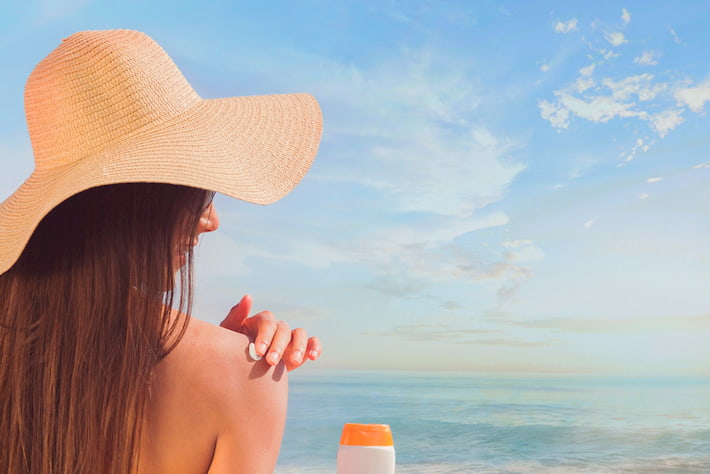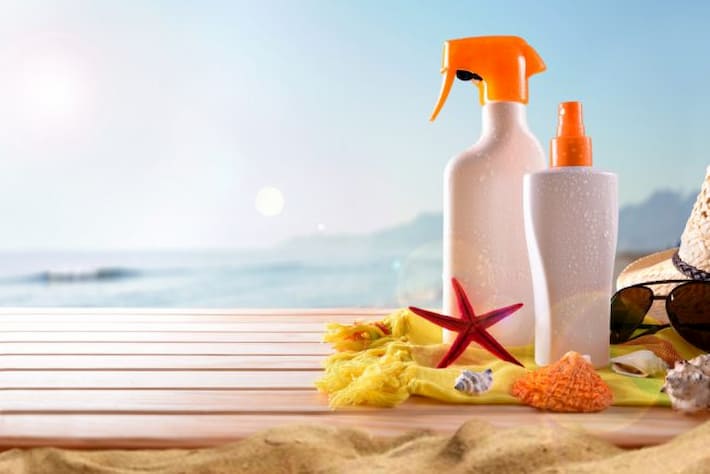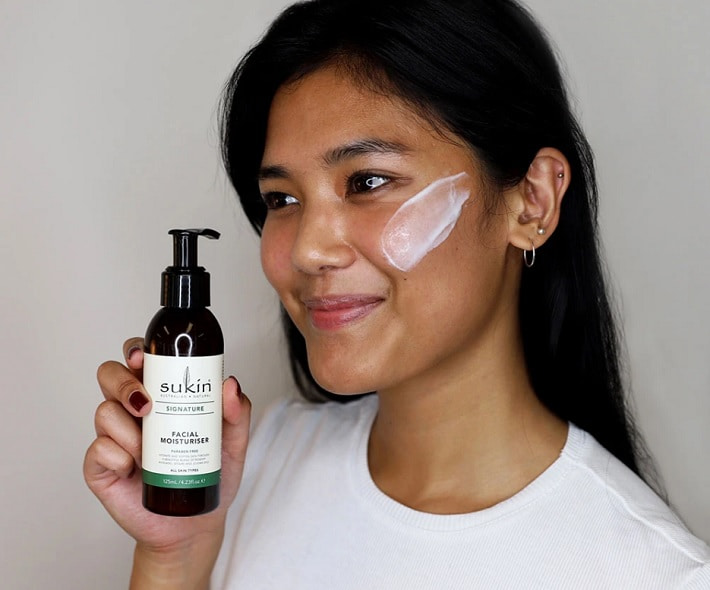If you feel like there are a lot of skincare rules for you to follow, it’s probably because there are. Some rules are easier to follow while others are harder to stick to, however, it’s always best to follow expert’s advice to ensure your skin is healthy, happy, and glowing all year long. Summer is a particularly trying time for your skin thanks to the high levels of humidity, heat, and sunshine. The scorching heat and blazing sun can be truly unforgiving, and pollution and other environmental contaminants can easily take a toll on its natural radiance, leaving it dull, oily, and blemished.
For that very reason, we asked a couple of professionals to share the most common skincare mistakes that most of us do during summertime and to give us some advice on how to avoid them.

Not Wearing Sunscreen – Or Not Wearing the Right One
It might seem like a no-brainer, but not wearing sunscreen is one of the most common summer skincare mistakes. Since UV radiation causes signs of premature aging and skin cancer, skin protection is key year ‘round. However, it’s not just a matter of wearing sunscreen – you should also ensure you’ve chosen the best product for your skin on the market. And while granted, you might have already set your eyes on some overpriced product that promises to do wonders to your skin, think about all the harmful ingredients you will be putting on your face and into the environment. Here’s a thought – have you considered using a chemical free sunscreen? If not, here are some benefits of using natural sun protection that I’m sure will convince you to make the switch.

No Toxins
One of the greatest benefits of using a non toxic sunscreen is that it doesn’t contain any harmful ingredients such as parabens, oxybenzone, and fragrances. These can have significant negative effects on your body.
- Oxybenzone is used to absorb UV rays so they don’t penetrate your skin. However, there are high chances that your skin will absorb this chemical instead. On the negative side, oxybenzone also breaks down when exposed to the sun, releasing free radicals, which promote skin aging.
- Parabens may extend the shelf life of the product, however, experts claim that they mimic the hormone estrogen. Therefore, when they are absorbed into the skin, your body could mistake them for estrogen and store them in your kidneys and liver.
- Artificial fragrances mask the actual smell of the “sunscreen” and make it seem more appealing to consumers. Just like parabens, artificial fragrances have been linked to breast and liver cancers as they may disrupt your hormones.
Immediate Protection
Since organic sunscreens are made with mineral active ingredients such as zinc oxide and titanium dioxide, there’s no waiting time for your skin to absorb the sunscreen. Chemical free sunscreen sits right on top of the skin, protecting it with a visible layer.
Environmentally Safe
Sunscreens wash off in oceans, rivers and lakes, leaving a chemical residue behind. However, organic sunscreens don’t have any toxic ingredients that damage coral reefs and micro ecosystems. They’re also typically cruelty-free and vegetarian.

Not Reapplying Sunscreen
Another skincare mistake related to sunscreen is forgetting to reapply it. SPF degrades in the sun and stops protecting your skin from the damaging UVA and UVB rays. Therefore, to avoid getting sunburnt, you should reapply the product every 60 to 90 minutes when you are out in the sun. Your best bet at doing this is setting a timer on your phone if you plan on staying in the sun longer than 45 minutes. When you are at the beach or pool, remember to reapply your sunscreen every time you get out of the water. Also, make sure to protect your scalp using a product that’s designed particularly for that or with a hat that has UPF protection.
Exfoliating in the Morning
Although it is a known fact that exfoliating is the key to having a smooth, healthy, and dewy skin, during summer, your best bet is exfoliating only at night. That layer of dead skin cells on your face acts as a layer of protection from UV rays. Furthermore, AHAs, BHAs, retinol/retinoids should all be used during your night-time skincare routine as well, since they can make your skin even more sensitive and susceptible to sunburns.

Not Using a Moisturizer
Summer typically means humidity, but that doesn’t mean you should skip out on using a natural face moisturiser. You should make sure you keep your skin hydrated even if it feels a bit oilier. You can also carry a non-alcohol face mist in your purse and spritz your face with it throughout the day. During the hot summer months, you can switch to using a water-based moisturizer and ditch the oil-based products so that your skin feels lighter and fresher.




